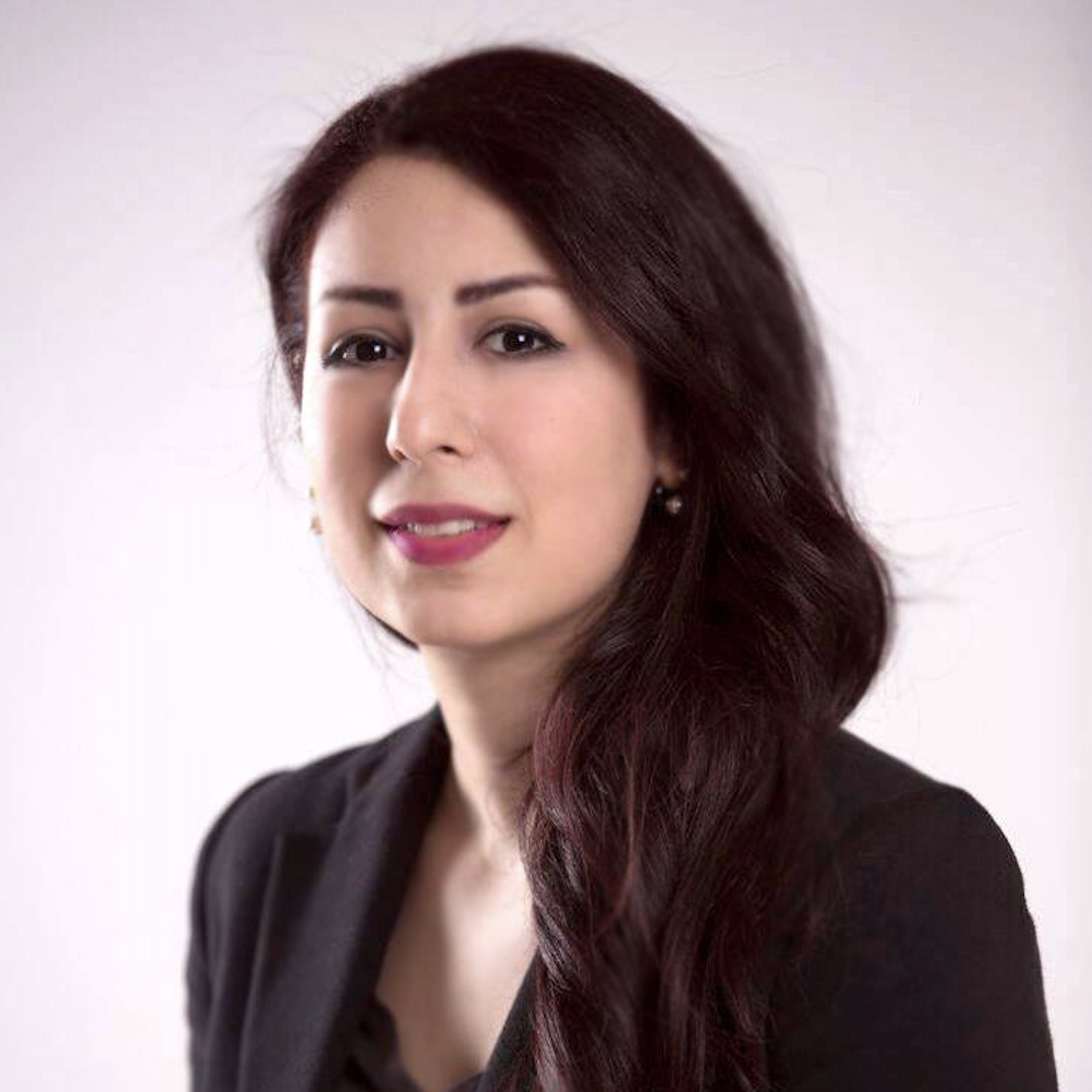Michael Tomasello is Professor of Psychology and Neuroscience at Duke University and emeritus Director of the Max Planck Institute for Evolutionary Anthropology, Leipzig, Germany. His research interests focus on processes of social cognition, social learning, and communication/language in human children and great apes.

Michael Tomasello
University of Duke
Talk title: Agency and Cognitive Development
Modern theories explain children’s cognitive development mainly in term of Bayesian learning (with some innate priors in infancy). But learning cannot be the whole story or else children could learn anything at any age - which they cannot. They cannot because their capacities to experience and cognitively represent the world are structured by the human species’ evolved psychological architecture - inherited from ancient animal ancestors - and this architecture changes in significant ways over the first years of life. The main organizing principle is agency, including shared agency. The developmental proposal is that young infants (below 9 months) are goal-directed agents who cognitively represent and learn about actualities; toddlers are intentional agents who executively represent and learn also about causal, intentional, and logical possibilities; and preschoolers (over 3 years) are metacognitive agents who metacognitively represent and learn also about normative necessities. This agency-based model of cognitive development recognizes the important role of learning, but at the same time places it in the context of the overall agentive organization of children at particular developmental periods.
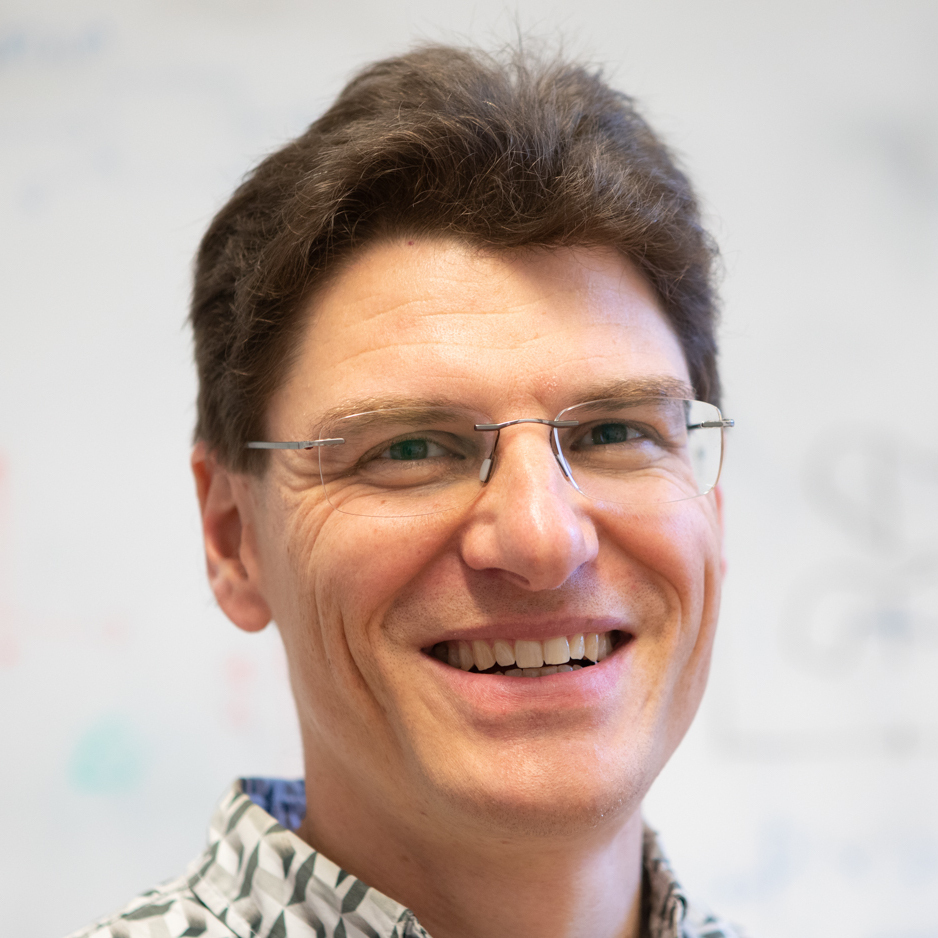
Georg Martius
Max Planck Institute for Intelligent Systems, University of Tübingen
Talk title: Intrinsic Motivations for Efficient Exploration in Reinforcement Learning
Georg Martius is a full professor at the University of Tübingen in Computer Science since 2023. He is also leading a research group on Autonomous Learning at the Max Planck Institute for Intelligent Systems in Tübingen. Before joining the MPI in Tübingen, he was a postdoc fellow at the IST Austria and was a postdoctoral researcher at the Max Planck Institute for Mathematics in the Sciences in Leipzig. He received his Ph.D. from the University of Göttingen and his computer science degree from University of Leipzig. His research focus is on machine learning for robotics, including internal model learning, reinforcement learning, intrinsic motivations, representation learning, differentiable combinatorial optimization and haptics.
I will summarize research in the area of intrinsic motivation in the context of learning and exploration and touch upon open-ended learning in the IMOL community. I will then present our recent work on combining different intrinsic motivation signals with reinforcement learning, such as learning progress, causal influence and information gain. A particular exciting direction is to employ model-based reinforcement learning to make robots learn by freely playing how to interact effectively driven by information gain and other generic drives. We find that this leads to high zero-shot generalization to new tasks.
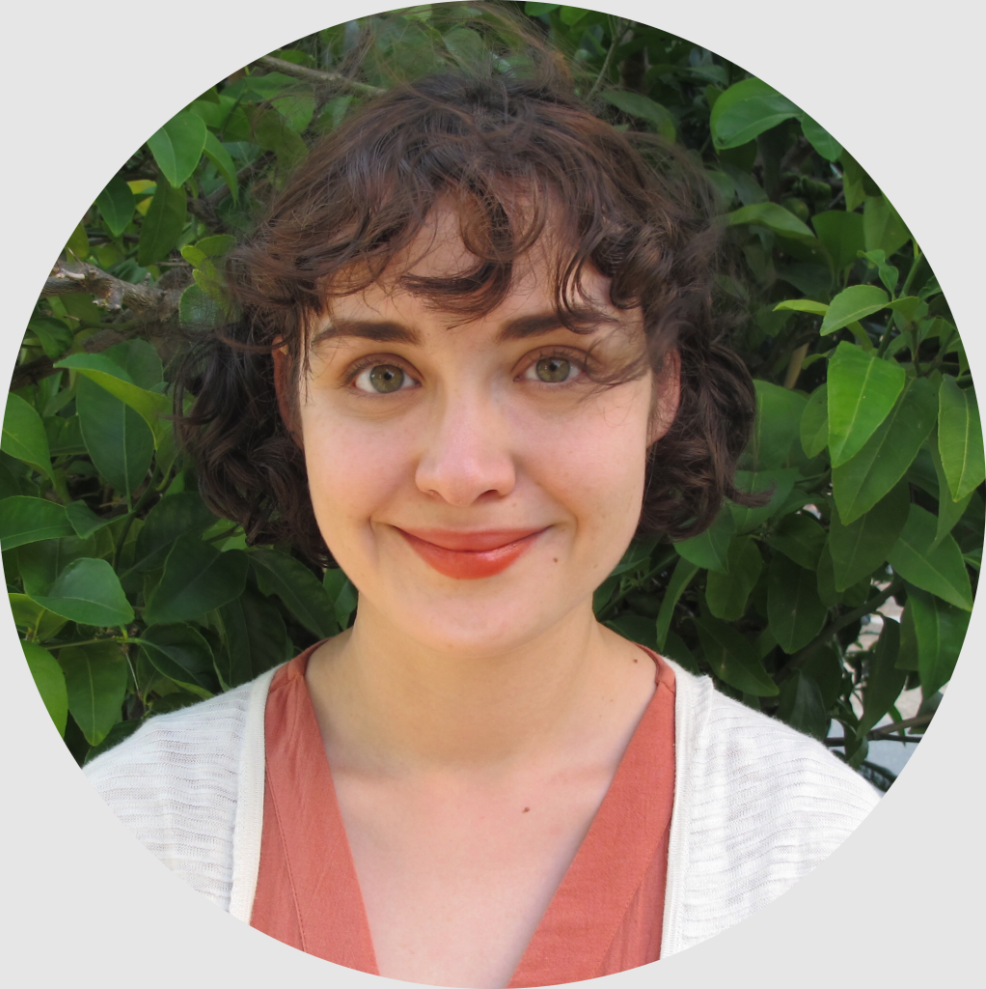
Natalia Vélez
Princeton
Talk title: How Do Humans Overcome Individual Computational Limitations by Working Together?
I am an assistant professor in the Department of Psychology at Princeton University. My lab studies the cognitive capacities and community dynamics that make human collaboration possible. We approach collaboration at two levels of analysis. Zooming in, our work seeks to understand how individuals navigate collaborations—that is, how individuals learn about their collaborators, share knowledge with one another, and divide labor. Zooming out, our work examines how community-wide dynamics contribute to the success of collaborations. Outside of the lab, I draw portraits of scientists alongside their science.
TBD

Daniel Polani
University of Hertfordshire
Talk title: Information and its Flow: From Dynamics to Agency and Back
Daniel Polani is Professor of Artificial Intelligence, Director of the Centre for Computer Science and Informatics Research (CCSIR) and Head of the Adaptive Systems Research Group at the School of Physics, Engineering and Computer Science at the University of Hertfordshire. He is Associate Editor in a number of journals. His research interests include principles of cognition, intelligence and robotics from first, especially information-theoretic, principles. Ramifications of this research range from practical applications to more fundamental questions, such as the role of embodiment, intrinsic motivations and taskless utilities, to questions from cognitive science, psychology, social science, and biology.
In the last few years, various forms of information flow were found to be useful quantities for the characterization of the decision-making of agents, whether natural or artificial. We here especially consider one particular type of information flow, empowerment, which can be used as intrinsic motivation that is derived from the dynamical properties of the external perception-action loop. The present talk will discuss empowerment in the context of its evolutionary motivation, questions of agency as well as some insightful new links to Dynamical Systems theory.
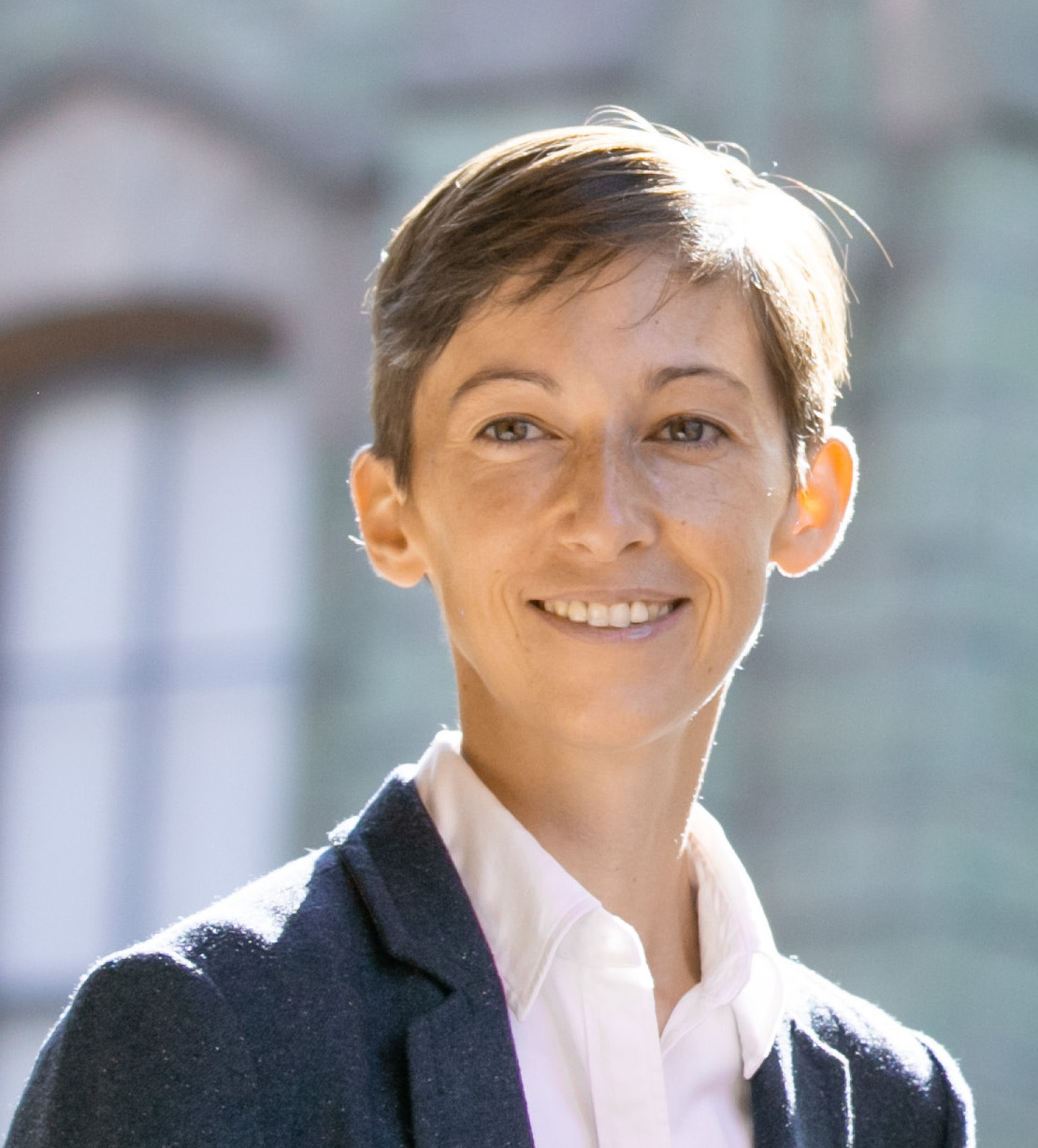
Dani S. Bassett
University of Pennsylvania
Talk title: Curiosity Styles in the (Natural & Artificial) Wild
Prof. Bassett is the J. Peter Skirkanich Professor at the University of Pennsylvania, with appointments in the Departments of Bioengineering, Electrical & Systems Engineering, Physics & Astronomy, Neurology, and Psychiatry. They are also an external professor of the Santa Fe Institute. Bassett is most well-known for blending neural and systems engineering to identify fundamental mechanisms of cognition and disease in human brain networks. They received a B.S. in physics from Penn State University and a Ph.D. in physics from the University of Cambridge, UK as a Churchill Scholar, and as an NIH Health Sciences Scholar. Following a postdoctoral position at UC Santa Barbara, Bassett was a Junior Research Fellow at the Sage Center for the Study of the Mind. They have received multiple prestigious awards, including American Psychological Association's ‘Rising Star’ (2012), Alfred P Sloan Research Fellow (2014), MacArthur Fellow Genius Grant (2014), Early Academic Achievement Award from the IEEE Engineering in Medicine and Biology Society (2015), Office of Naval Research Young Investigator (2015), National Science Foundation CAREER (2016), Popular Science Brilliant 10 (2016), Lagrange Prize in Complex Systems Science (2017), Erdos-Renyi Prize in Network Science (2018), OHBM Young Investigator Award (2020), AIMBE College of Fellows (2020), American Physical Society Fellow (2021), and has been named one of Web of Science's most Highly Cited Researchers for 3 years running. Bassett is the author of more than 400 peer-reviewed publications, which have garnered over 45,000 citations, as well as numerous book chapters and teaching materials. Bassett’s work has been supported by the National Science Foundation, the National Institutes of Health, the Army Research Office, the Army Research Laboratory, the Office of Naval Research, the Department of Defense, the Alfred P Sloan Foundation, the John D and Catherine T MacArthur Foundation, the Paul Allen Foundation, the ISI Foundation, and the Center for Curiosity. Bassett has recently co-authored Curious Minds: The Power of Connection (MIT Press) with philosopher and twin Perry Zurn.
What is curiosity? Across disciplines, some scholars offer a range of definitions while others eschew definitions altogether. Is the field of curiosity studies simply too young? Should we, as has been argued in neuroscience, press forward in definition-less characterization? At this juncture in the field's history, we turn to an examination of curiosity styles, and ask: How has curiosity been practiced over the last two millennia and how is it practiced today? We exercise a recent historico-philosophical account to catalogue common styles of curiosity and test for their presence as humans browse Wikipedia. Next we consider leading theories from psychology and mechanics that could explain curiosity styles, and formalize those theories in the mathematics of network science. Such a formalization allows theories of curiosity to be explicitly tested in human behavioral data and for their relative mental affordances to be investigated. Moreover, the formalization allows us to train artificial agents to build in human-like curiosity styles through reinforcement learning. Finally, with styles and theories in hand, we expand out to a study of several million users of Wikipedia to understand how curiosity styles might or might not differ around the world and track factors of social inequality. Collectively, our findings support the notion that curiosity is practiced---differently across people---as unique styles of network building, thereby providing a connective counterpoint to the common acquisitional account of curiosity in humans.
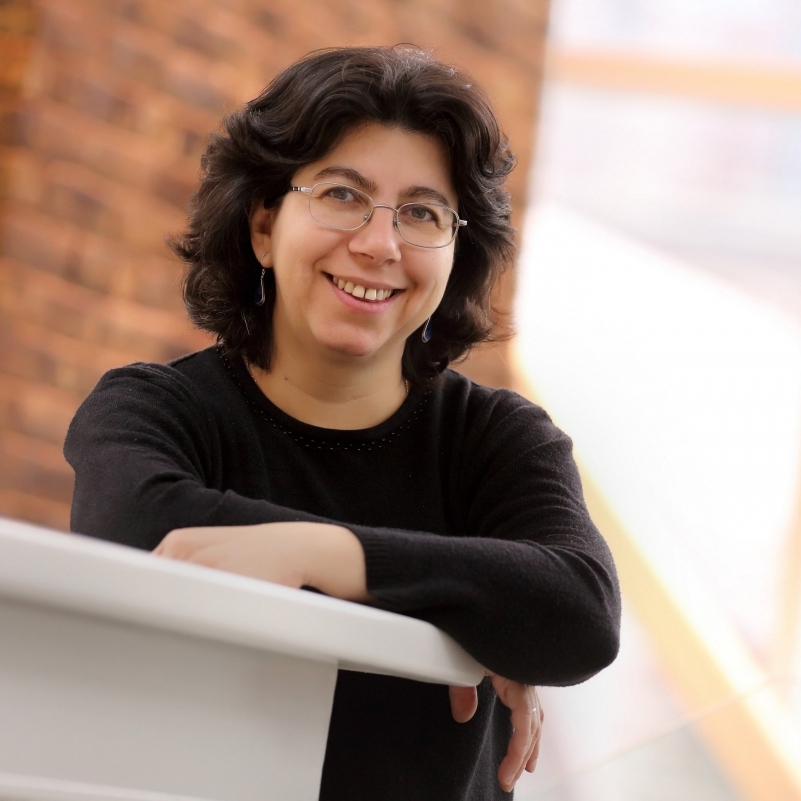
Doina Precup
McGill University, Mila, Google DeepMind
Talk title: TBD
Doina Precup splits her time between McGill University, where she holds a Canada-CIFAR AI chair, and Google DeepMind where she has been leading the Montreal research team since its formation in October 2017 and the Deep Reinforcement Learning team since 2021. She is also a core member of Mila (the Quebec AI institute) and a Fellow of the Royal Society of Canada, noted for her fundamental contributions to reinforcement learning. Dr. Precup obtained her Ph.D. in Computer Science at the University of Massachusetts-Amherst in 2000. Her main research interests are in reinforcement learning, especially neverending learning and making deep RL more efficient and real-world applications of machine learning, with an emphasis on medicine. Dr. Precup is also involved in activities aiming to improve diversity in machine learning.
TBD
